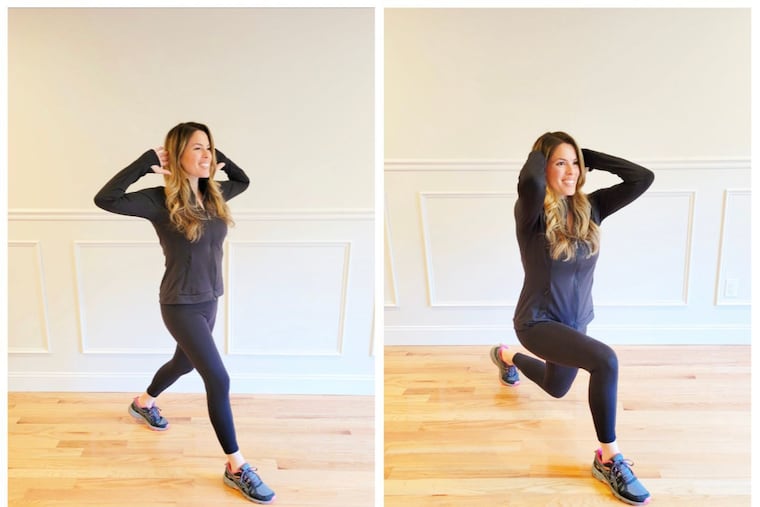Three ways to start improving your heart health
Follow these tips for keeping your heart in top health

Are you showing your heart enough love? With Valentine’s Day and American Heart Month, February is a time that’s after your own heart.
Your everyday lifestyle choices directly affect the heart’s performance, so good cardiovascular health should be at the heart of your decisions when it comes to nutrition, fitness and stress management.
Here’s how:
Kick up cardio
We know aerobics are a top pick for pumping up heart health. When you engage in physical activity, you’ll quickly notice its immediate effects. Your heart begins beating faster, breathing increases and you feel muscles tensing to keep up with the workload.
But what many of us don’t realize is that there are profound physiological benefits, as well, such as burning excess blood sugar and boosting circulation. Regular cardio can also reduce the risk of chronic conditions such as diabetes, high blood pressure and elevated cholesterol.
Any cardio activity is better than none. If a stroll around the block while on a work call is your only chance to clock some miles, then do it. However, for greater benefits, your goal should be 150 minutes of moderate intensity, or 75 minutes of vigorous intensity aerobics each week.
Examples include:
Walking
Jogging
Biking
Sports such as tennis, pickleball, basketball, soccer or swimming
Start strength training
When you think of resistance exercises, chances are you think more of enhancing muscle definition than how it promotes a healthier heart. But what makes strength training particularly unique is how well it augments lean tissue and incinerates body fat.
Visceral fat, which is found around the abdomen, is especially problematic for heart health.
Strength training exercises can help reduce stomach fat and reduce the risk of dangerous chronic conditions that impair the heart’s ability to work effectively and efficiently.
Resistance training is most beneficial when performed at least two nonconsecutive days a week, unless you’re targeting different muscle groups back to back. This helps in avoiding overuse injuries.
Examples include:
HIIT (high-intensity interval training) workouts
Working out with free weights, dumbbells, weight machines, body weight, resistance bands or medicine balls
Need some inspiration? Try this bodyweight-based HIIT workout designed to work more muscles in less time:
Mountain climbers
Start in a plank position with the shoulders stacked over the hands, spine straight and feet slightly apart.
Briskly drive the knees up toward the chest for 30 counts. Avoid hiking or dipping the hips.
Glute bridges
Begin on your back with the knees bent and feet firmly planted on the floor. Push through the heels to elevate the hips until they form a straight line with the shoulders and knees. Bend the elbows, keeping the upper arms tucked close to the ribs.
Hold this lifted hip position, squeezing the glutes, as you pump the arms straight up and down for 25 repetitions.
Stationary lunge
Stand in a split stance with your hands behind your head and elbows out to the sides.
Bend at the knees to lower into a stationary lunge and draw the elbows in toward each other. Squeeze the chest for two counts, then push through the heels to stand and open the elbows back to the starting position. You should feel a deep stretch in the chest when opening the arms. Perform 10 to 12 times, then switch legs. When complete, repeat this entire circuit three more times.
Banish bad habits
Behaviors such as smoking, drinking, eating poorly and being sedentary are very hard on the heart. And over time, they begin to jeopardize your heart health by increasing your chances of high blood pressure, elevated LDL (bad) cholesterol, and arteriosclerosis (hardened arteries).
Good mental health can also benefit your heart. A daily, 15-minute stress-reducing routine can release tension and improve mind/body connection.
Check out your “Stress less guide: A stretching series to help you better manage stress” here.
Ashley Blake Greenblatt is a certified personal trainer and wellness coach in South Jersey. Learn more about her virtual training program at ashleyblakefitness.com.